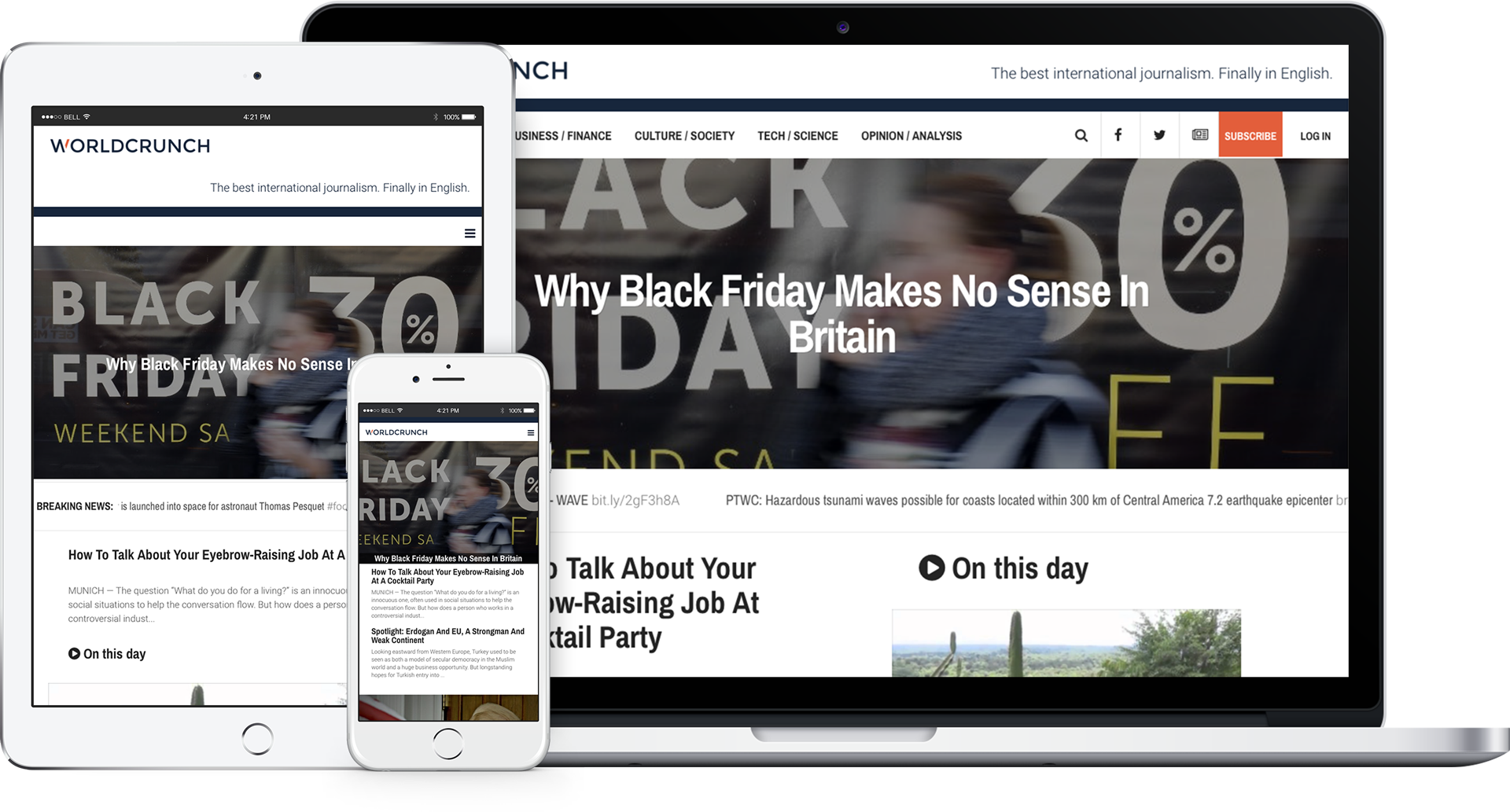-OpEd-
PARIS — As French President François Hollande and German Chancellor Angela Merkel, looking a bit like co-conspirators, prepare to negotiate for peace in Ukraine with Russian President Vladimir Putin, Hollande whispers into Merkel's ear, "OK, Angela, I’ll play it firm, and you flexible, alright?"
As Putin waits for them at the other end of the room, Merkel answers, "François, let's maybe do the opposite!"
Excellent (In "Le Canard enchaîné") pic.twitter.com/24A9qvk8Mg
— Cyril Petit (@cyrilpetit99) February 11, 2015
This cartoon by Mougey, published in the French weekly Le Canard Enchaîné, is amusing. But in ongoing negotiations that finally resulted in a Ukraine ceasefire earlier this week, the two leaders actually chose not to play the good cop/bad cop routine. Still, the duo's approach is working: They speak with a single voice. It's the first time in a long while that Europe has led a large-scale diplomatic operation from start to finish and got the kind of comforting result the two leaders reached with Putin in Minsk. We have to be careful, of course, but after these 16 difficult hours of talks, the specter of a total war in Europe seems much less threatening.
Tension is still high between Kiev and Moscow, and there are still major points to negotiate: the degree of autonomy Ukraine's eastern regions will be granted, the fate of the city of Debaltseve, and the restitution to Ukraine of its international borders. But what does seem decided is a ceasefire that will take effect at midnight on Feb. 15, together with the withdrawal of heavy weaponry and the release of prisoners.
American "bad cops" step aside
Meanwhile the real "bad cop" in the affair was becoming agitated, in a badly organized and vain way, across the Atlantic. President Barack Obama was beating the drums of war, talking about arming Ukraine, raising the prospect of cold war before an economically weak Russia. Europe took a different approach. Without lowering its guard regarding sanctions, it chose to focus on dialogue. Hollande and Merkel accepted the assumption that Russia isn't necessarily strategizing to annex Ukraine, but that it simply refuses to see it under NATO's thumb.
In early December, the situation seemed particularly dire, with errors made on all sides: lies and brutality from Russia, nationalistic tension on part of Ukraine, European diplomatic autism, bellicose American nonsense. Putin was pushed into a corner — exactly the kind of situation that can make such a man become dangerous. Tension in Donbass was only rising, with more and more civilians killed and hospitals bombed. It was high time to break what François Miterrand called this "logic of war." Only the French and German leaders managed to do that, by finally conducting a serious negotiation.

Putin, Merkel, Hollande and Poroshenko on Feb. 11 — Photo: Karl-Ludwig Poggemann
The French president first went to Moscow to meet Putin on Dec. 6, breaking the isolation in which the Russian leader had found himself since the crisis began. Then he went back with Merkel in February, engaging four-way discussions. As history has shown several times, Germany and France carry a lot of weight when they work together. In their case, 1+1 equals much more than 2.
Another cartoon published in Le Canard Enchaîné this week, signed by Pétillon, depicts the Hollande-Merkel duo in Moscow walking out of the room and saying, "Why don't we go and see the Greeks while we're at it?"
It's funny, but it's actually not such a bad idea. France and Germany know they can't let Greece slide towards chaos, toward a nationalistic withdrawal, or fall into Russia's arms. After a long breakdown, the French-German alliance is back, and that's a good thing. May they now work resolutely for the European people, starting with the most afflicted.





